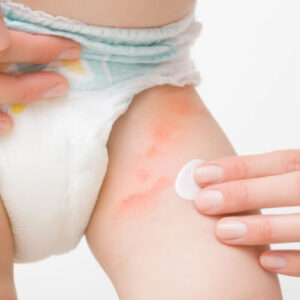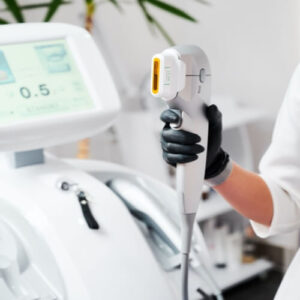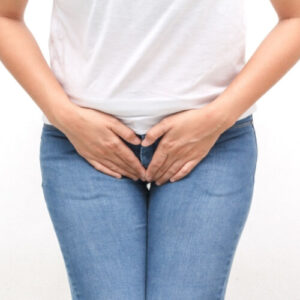pre-menopausal stage
Premenopause and its symptoms
Shutterstock
What happens before menopause?
Perimenopause is the time when a woman begins to experience menopause-like symptoms, such as hot flashes or irregular periods, and her body begins to signal the end of her childbearing years.
During this time, the levels of estrogen, the main female hormone, begin to decrease.
In fact, perimenopause simply describes the time when the menstrual cycle is no longer expected, and the symptoms, the age at which they begin and how long this phase lasts vary from female to female.
Different physical changes and symptoms can occur when the levels of different hormones in the body change; During this period the level of fertility decreases, but with the continuation of the possibility of pregnancy.
A woman is considered to have passed this stage and entered menopause after 12 consecutive months without any period.
Premenopausal symptoms?
It can be difficult to distinguish between the hormonal symptoms of menopause and the general changes caused by aging, for example.
Given the variety and diversity of menopausal women’s experiences, symptoms are unlikely to depend on hormonal fluctuations as changes in relationships, career paths, and more can affect them. The most common symptoms include:
- Hot flashes and night sweats: Appreciate it 35% – 50% Among women suffer a sudden increase in body temperature in the period before menopause, and these flashes are accompanied by sweating and redness and usually last 5-10 minutes. Hot flashes can last a year or two after menopause.
- Changes in sexual desire
- Vaginal dryness: Low estrogen levels can cause the vaginal tissues to become thinner and drier.
Vaginal dryness can also cause itching and irritation, and this dryness can cause pain during intercourse, which affects the decrease in libido. - Breast tenderness
- Overweight
- Irregular menstrual cycles
- Menstrual cycles become lighter or heavier than usual
- Sleep Disorders: About 40% of premenopausal women have difficulty sleeping.
- Mood changes
- Thinning and breakage in the hair
- palpitations
- Headache
- joint and muscle pain
- Increased need to urinate more often
- high cholesterol levels (1)
- Other problems For example, many women complain of short-term memory problems and difficulty concentrating at this stage; Urinary tract infections may also occur.
Health risks associated with stage
There are health risks associated with menopause, which can occur immediately after menopause; from her:
- Estrogen plays an important role in maintaining bone health; When it is low, osteoporosis can develop, where the inner parts of the bones become less dense and more brittle, increasing the risk of fractures.
- Menopausal women also have an increased risk of heart disease and other cardiovascular conditions.
Treatment of premenopausal symptoms
Home and medical treatments can help ease the physical and mental effects.
1- Heat waves
Some methods that can help relieve hot flashes include:
- Avoid triggers, such as spicy food, hot drinks and being in very hot places.
- Breathe deeply and slowly
- Wear layers of loose clothing that is easy to take off
- Keep a fan nearby, especially at night
- Drink cold fluids when hot flashes occur
2- Birth control pills
Low-dose oral contraceptives may help treat some menopause-related disorders.
Where, according to one study, The year 2018 Taking the combined birth control pill may help reduce the risk of:
- Irregular periods
- Heavy bleeding during menstruation
- heat waves
- Ovarian, endometrial, colon and rectal cancer
- However, there is evidence to suggest that these pills may slightly increase the risk of breast cancer, blood clots and heart attacks.
3- Drug treatments
Hormonal treatments can help some females deal with hot flashes and other symptoms.
These treatments may include estrogen, progestin, or both, and sometimes estrogen can be combined with other medications.
It is important that the doctor asks about the woman’s detailed medical history and symptoms to help her determine if hormone therapy is right for her, and thus can offer the lowest possible dose since hormone therapy can have negative effects.
4- Home care
Sometimes the symptoms can be alleviated by following several tips:
- Eat a diet rich in fruits, vegetables, whole grains, lean protein and healthy fats.
- Walking long distances or doing strength exercises.
- Improve sleep quality by avoiding electronic screens and doing relaxing activities before bed.
- Reducing alcohol and caffeine consumption
- Practice meditation or other stress management techniques.
- to stop smoking
- Lose weight if necessary
preventive measures
Irregular periods are the most common symptom before menopause; However, in some cases, it is important to talk to your doctor about menstrual issues.
You can also reduce the risk of complications by talking to your doctor in cases such as:
- Bleeding for more than seven consecutive days
- Bleeding between periods
- Change sanitary napkins every 1-2 hours
- Repeat menstruation every 21 days or less





